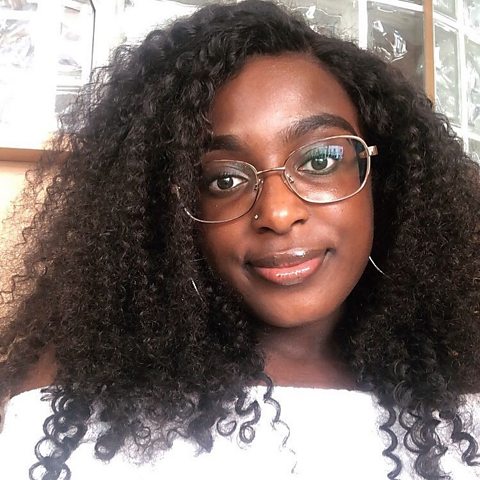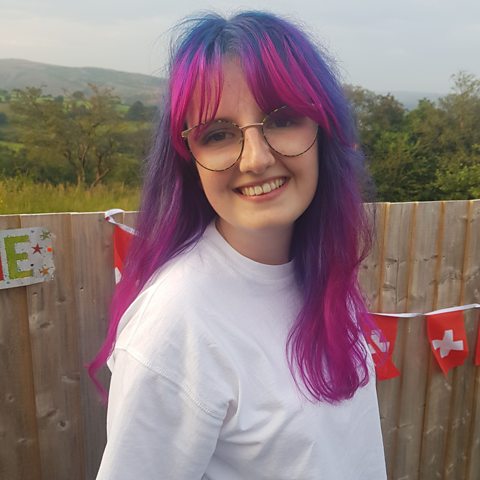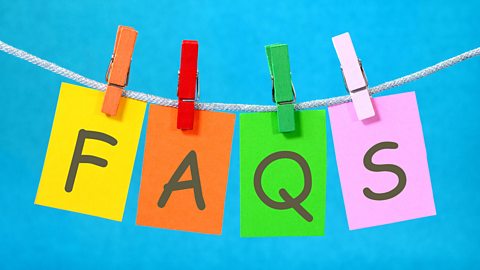This article was first published in July 2020 and last updated in August 2024.
Results day can be challenging if you donÔÇÖt get the grades you need for A-levels or Highers. Learn from these four young people who navigated the uncertainties and found success through Clearing, gap years, and apprenticeships.
Real stories of overcoming A-level or Highers setbacks
Navigating Clearing successfully
I went through Clearing - and IÔÇÖm loving my new uni.

Rashidah studied English Literature, Economics and Sociology for her A-levels. She wanted to study Business Management and Marketing at university. However, she didnÔÇÖt quite make the grades she needed, so had to go through Clearing instead.
"I was really scared on results day. I didn't want to fail anything and resit exams. I had conditional offers for three Bs. In the end I got BBD. I was disappointed I got a D in Economics. My results meant I didn't get into my firm or insurance choice, so I started researching potential unis for Clearing and called them up.
"The Clearing process was really simple: I went through the Clearing courses that were available on UCAS and I called the universities I liked to find out whether the course was still available ÔÇô because certain courses fill up fairly quickly. I got a place at the University of Leicester to study Management Studies (Marketing). It was approved much faster than I thought. Once I found out, I was really excited because I knew people who went to the University of Leicester and really enjoyed it.

University is what you make it, so no matter where you end up, you can still have a great time.
"IÔÇÖd say to anyone whoÔÇÖs worried about their results, everything will work out. Going through Clearing is really common, so don't worry if that's what you end up having to do. Look at where the course you want to study ranks on the league tables to narrow down your options. Research the university, find out the entry requirements and whether your course is available through Clearing, then call them up for further information."
Ben Jordan, Director of Strategy at UCAS, says: "Universities and colleges use a range of information when assessing applications, ranging from predicted grades, personal statement and the student's background. On results day, the majority of people get their first choice.
"Either way, when preparing for results day, students can place themselves in the strongest possible position by thinking ahead and putting together a Plan B. Spend some time researching possible courses youÔÇÖre interested in and contact the admissions offices at the universities and colleges youÔÇÖre interested in to talk about spaces.
"Remember there are no restrictions on the number of conversations you can have with universities during Clearing ÔÇö we encourage you to explore and have multiple conversations with different providers before making a decision."


Planning for results day
My advice for results day? Be prepared.
Curtis is 19 and studied Maths, Chemistry and History for A-levels. He had applied to do Law at Oxford or Warwick University, but on results day he didnÔÇÖt get the grades he needed for either university. Curtis went through Clearing and says heÔÇÖs happy now where he is.
"Maybe it was paranoia but I had a feeling after my exams about my results. So, I looked at what was on Clearing for the year before. I made a spreadsheet of what might happen ÔÇô so I knew what university I could go to depending on what different grades I got. On the day I had all the phone numbers ready.
"I was still a bit shocked on results day but I knew I had to stay calm and go into Clearing. I phoned around six hotlines. I had called Warwick University a few times but I couldnÔÇÖt get through. My dad and I stopped for lunch, and afterwards I did get through. I was looking for humanities subjects, and I managed to get myself a place at Warwick, studying History and Philosophy.
"I've enjoyed my first year a lot. Though the course wasn't what I intended on studying, it's been an engaging year academically. At university I have managed to find people in a similar position to me, which has been reassuring ÔÇô but I don't feel any different to people who made their offers.
"I have learned about being prepared and staying calm in that kind of situation ÔÇô and knowing everything will be alright in the end. Sometimes things donÔÇÖt go to plan but at least youÔÇÖve got something as a back-up.
"If you have got a feeling [about your exam results] then be prepared. Have a look at other things that might be of interest. Look at other unis. Stay calm and make sure you get where you want to be. YouÔÇÖll end up somewhere really good and you'll enjoy uni life wherever it is."
Ben Jordan from UCAS says: "UCAS Clearing is where universities and colleges list courses with vacancies and offer the opportunity for students to apply for them ÔÇô this could be if you have not done as well as expected and are looking to secure a place, or indeed if you have chosen to decline your place and apply elsewhere.
"Clearing opened on July 5, giving you the chance to research vacant courses and universities and prepare for a range of scenarios. Clearing remains open until October 21, so for anyone who hasnÔÇÖt made an application yet but is considering going into higher education this autumn, there is still time to apply.
"If you have not yet applied, you first need to register and make an application. Once youÔÇÖve submitted your application, you can start searching for universities and courses with vacancies and add a choice."



Taking a gap year to reflect
I took a gap year after my results to figure things out.
Francisca is 20 and studying Geography at university. She took English Literature, Geography and Applied Science in her final year of A-levels. She hoped to go to university, but after not achieving the results she wanted she decided to take some time out.
"I did really well in my GCSEs but found it stressful. A-levels were a different ball game. I found them more difficult than uni because you are learning so much new content at such a high level; and you only have two years to change the way you think and learn.
"I went through a bad time with my mental health during A-levels and couldnÔÇÖt voice it ÔÇô I didnÔÇÖt know where to get help. I didnÔÇÖt do as well as IÔÇÖd expected in my Geography A-level. There was disappointment. When youÔÇÖre an overachiever and then that one time youÔÇÖre not, it feels like your whole world is ruined. But IÔÇÖm not a failure ÔÇô I know my abilities.
"I still got into university but then I withdrew. I went to see unis closer to home, but in the end I cancelled my student finance application and decided to take a gap year. During that year, I did my UCAS application all over again. I had a better personal statement as I had really thought about it this time around.
"I also worked a few different jobs. I learned a lot about myself, I became a different person. Youre alone, your friends have gone to uni, your family are still working I had to find my feet and learn how to do things by myself.

I feel more secure in myself ÔÇô my time management and communication skills have improved.
"My advice when applying for uni is to apply for a range of universities with a range of grade expectations. Even if you are an A* student, donÔÇÖt just go for Oxford and Cambridge or all the top unis.
"I would also say have a plan B for results day. Make sure that if youÔÇÖre going through Clearing or Adjustment that youÔÇÖve got that planned. Think too about work or apprenticeship schemes, or degree apprenticeship schemes. Even within the education system we all work differently. Some people are better at exams, some are better at coursework."
Ben jordan from UCAS says: "ItÔÇÖs common to change your mind and want to take some time to reflect and focus on what to do next - perhaps to go travelling to pursue volunteering or a job. ItÔÇÖs important to know how to plan and what opportunities are available.
"You can find on deferring your entry, including the practical steps on how and when you can defer your entry, and what to consider."


Choosing an apprenticeship over university
I did a degree apprenticeship instead of going to uni.
Ashleigh is 21 and lives in South Wales. She studied Maths, Further Maths, and Physics for A-level, as well as her Welsh Baccalaureate. She had high predicted grades, but didnÔÇÖt do as well as sheÔÇÖd hoped. So sheÔÇÖs taking a different route towards a degree.
"During my A-levels I applied to do Electrical Engineering at Bath University. I needed two A*s and an A, but the grade expectations for me were lowered to two As and a B. Universities often do that for people from lower [socio-]economic backgrounds.
"I also applied to do a few apprenticeships. I wasnÔÇÖt that into the idea of university social life, and the idea of student debt really put me off. I had good GCSE results ÔÇô four A*s, five As and four Bs ÔÇô which impressed employers when I started taking my CV to places. One company told me theyÔÇÖd take me on even if I failed my A-levels ÔÇô they would put me on a Level 3 apprenticeship instead. Because of that offer, I worked really hard in Maths.

On results day I knew it didnÔÇÖt matter what I got because I already had a plan.
"I was still really stressed in the days leading up to exam results. On the Monday before, I withdrew my UCAS form ÔÇô because I couldn't deal with the rejection of not getting into university. I knew my Physics exam had gone really badly. But at least I had a plan. I started my apprenticeship and I did an HNC (Higher National Certificate) ÔÇô a Level 4 qualification. IÔÇÖm now doing a Bachelors of Mechanical Engineering.
It just takes a bit more work to hunt down those other opportunities.
"IÔÇÖm happy with where I am now. I feel like I made the right decisions for me. Based on my predicted grades, people told me that not going to uni would be a waste, but itÔÇÖs just not for everyone. There are so many more options ÔÇô you donÔÇÖt have to do what everyone else is doing."
Ben Jordan from UCAS says: "You can explore all your options, side-by-side on , including both undergraduate degrees and apprenticeships at all levels, up to degree. You can use UCASÔÇÖ to search for apprenticeships, available across multiple roles and sectors ÔÇö from engineering and pharmacy, to marketing and graphic design. And the UCAS to finding an apprenticeship gives helpful guidance, tips and advice on how to find the best apprenticeship for you."
To find out more about Degree Apprenticeships, read the article: What is a degree apprenticeship and is it right for me?
Check out the UCAS website for the lowdown on .

Discover more about your options after A-levels and Highers
Explore Bitesize Careers for advice on Clearing, gap years, apprenticeships and alternative pathways.
What is Clearing?
What is Clearing all about? Read our advice on the process and how to weigh up your options.

Should I take a gap year?
Taking a year out and how to make it count.

What is an apprenticeship and how could I get one? FAQs answered
Here are our answers to your Frequently Asked Questions on apprenticeships.

Quiz: Apprenticeship, university or work? quiz
Take our fun quiz and explore if a job, further education, or an apprenticeship could be the right path for you.

Five top tips for acing online interviews
Advice for smashing virtual interviews and insight from a successful interviewee.

Top application and interview tips. video
The Mind Set coaches offer their interview advice.
